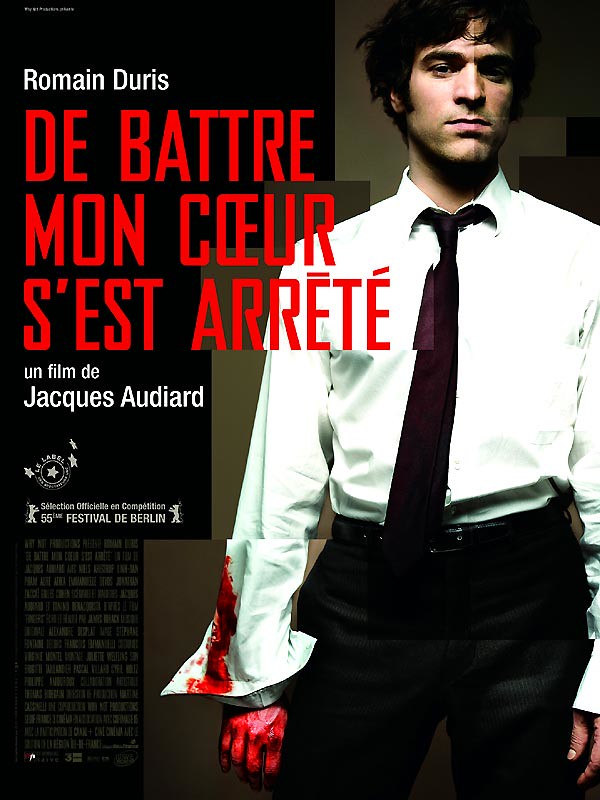
It's nice to have something more character-driven and naturalistic to watch. There's not nearly so much I have to say about this as, say, the Harry Potter series. Because this isn't a story about what happens next so much as it is about who it happens to and what their choices (or lack of choices) are, I feel like I'm watching with a different part of my brain turned on.
I really liked the tone of this. 90% of the story's tension is between Tom Seyr's dreams to be a pianist and the pressure in his world to be a crooked real estate man and petty thug for his father, but neither of those storylines felt like they depended on any shorthand or easy formulas from the hundreds of films that came before it. The way the piano playing was depicted was concise and clear, even to a non-musician, and having a coach who didn't speak his language kept the scenes from ever relying on easy exposition or colorful language to carry the action, instead showing us that he cannot relax, that he plays too quickly and stiffly, that his concentration is off or his anger issues are getting in the way, strictly through the playing or the non-verbal interactions between him and Miao Lin. Likewise, the real estate "thug" half of the story -- seemingly so disparate from the world of concert pianists (I have not seen Fingers, which I now recall this is a remake of; that's okay with me, though I may someday seek it out) -- never feels like a crime-story cliché. Instead, it feels awkward and desperate and messy and emotional and brutal. It feels like what you'd expect real crime feels like: quick, dirty, and often improvised.
The only other thing I have to say is, the last ten minutes -- the "two years later" coda, makes the story for me. Up until that point it was just another character-driven drama with a lot of expertly-done tight handheld camerawork and some gritty performances. Something about the epilogue transported it for me to a different kind of movie, I guess in the way it was all so painful and full of consequence but ambiguous. From the moment [SPOILER] Tom came home and found his father dead to the moment, two years later, that he sits in the audience, shaking and covered in the blood of his father's killer (or so we assume, and so does he) and shares a look with Miao Lin, everything moves so quickly and so definitively that you almost can't keep up. It's like Tom's playing: he doesn't slow down or take breaths, he just rolls through, excited and anxious about each next note, and then over in a flash. That kind of performance may hurt a delicate piano piece, but here that pacing strengthens the end of an already pulled-taut drama film.
Cutting to black on that look is just the right way to end it: all judgments and reactions have to exist outside the film. Room to breathe would have only made room for sentiment and consideration, and for better or worse, Tom's world hasn't had a lot of those things in it.

No comments:
Post a Comment